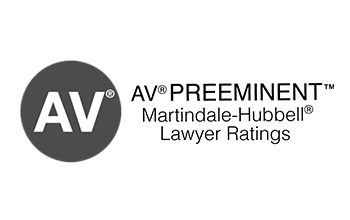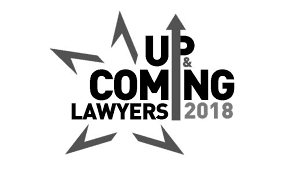Must the POSSIBILITY of Obtaining a Zoning Variance Be Considered When Appealing a Property Tax Assessment?
October 16, 2015 Category: Real Estate
When Appealing a Michigan Property Tax Assessment, Must the Possibility of Obtaining a Zoning Variance Be Considered in Determining the Property’s True Cash Value?
The Answer: It depends!
MS v. City of Brighton, 2015 Mich. App. LEXIS 799 (Apr. 21, 2015), highlights the importance of retaining an expert in a Michigan property tax appeal, especially where the parties dispute is whether the possibility of obtaining a zoning variance must be considered in determining the property’s true cash value (“TCV”). The salient facts are as follows.
MS owned a 53-acre vacant parcel in the City of Brighton (“Brighton”), which could only be accessed by a narrow 1400 foot egress strip on one side of the parcel. Notwithstanding this significant limitation, Brighton valued the parcel at over $2 million [$37,736/acre] and assessed and taxed the property accordingly. MS appealed this assessment to the Michigan Tax Tribunal (“MTT”).
In the MTT, the parties agreed that, due to the length of the egress, under Brighton’s ordinances the property could not be developed using a dead-end or cul-de-sac road, but would instead have to be developed using a loop or circle road [a road encircling the property or much of the property]. The parties disagreed, however, as to whether the MTT was required to value the property by reference to Brighton’s ordinances [MS’s position], or whether the MTT should instead value the property as if MS could obtain a variance allowing development via a more feasible cul-de-sac roadway [Brighton’s position].
The MTT agreed with MS that it was not feasible to use the property for commercial development because it would be cost prohibitive to construct a loop road, as required under the existing ordinances. The MTT explained that, although the gross value of the property was worth approximately $1.5 million as commercial property, in order to actually use it, MS would be forced by the existing ordinances to construct a loop road at a cost of approximately $3.1 to $3.4 million, which would negate the gross value. In other words, the property would have a value of a negative $1.6-$1.9 million.
The MTT disagreed with Brighton that the grant of a variance was so likely that it should have been included in the MTT’s calculations concerning the highest and best use of the property. The MTT concluded that, given the cost to construct a loop road, use of the property for commercial purposes was not financially feasible, and that the highest and best use of the property was for recreational/future development which had a TCV of $264,000 [$4,981/acre], rather than the over $2 million Brighton’s expert had proposed. Brighton appealed.
In the Court of Appeals (“COA”), Brighton argued that the MTT had made a mistake when it analyzed the parcel’s “worst” use as recreational/future development, rather than its “best” use for commercial purposes. Brighton contended that the basis for the MTT’s error was its decision not to take into account the likelihood that MS would be granted a zoning variance allowing development via a cul-de-sac road, rather than a loop road, as required under the ordinance, and that the MTT should have valued the property as if the variance would be granted if requested.
In considering Brighton’s argument, the COA explained that “a land use variance is, in essence, a license to use property in a way that would not be permitted under a zoning ordinance.” The fact that variances may be granted does not equate to a finding that a variance must be, or likely will be, granted upon request. In fact, the wording of the Brighton’s ordinances did not support a finding that a variance was likely to be granted in this case.
Furthermore, MS’s expert testified that a cul-de-sac road to the buildable portion of the site would need to be 2,800 feet long and that he had never seen a variance approved for that length. MS’s expert also explained that, in his experience, cul-de-sac length variances are not typically granted unless there exists a second emergency ingress/egress connection for police and fire trucks. Due to the topography of the property and its location, MS’s expert opined that constructing such an emergency ingress/egress connection would entail “major, major development costs.” Based on this testimony and the wording of the ordinance itself, the COA concluded that Brighton’s argument that the MTT was required to determine the highest and best use of the property as if a variance would be granted, or was highly likely to be granted, was without merit.
The COA also rejected Brighton’s suggestion that MS was somehow at fault in that it had failed to seek a variance in order to “artificially depress” its land value. The COA responded that taxpayers are not required to develop their property so as to maximize the property’s taxable value. On the contrary, they may arrange their affairs such that their taxes are as low as possible, and “there is not even a patriotic duty to increase one’s taxes.” And with that last comment, the COA affirmed the MTT in all respects.
Bottom Line: In a Michigan property tax appeal, the MTT is not required to consider the possibility of obtaining a zoning variance in determining the property’s TCV, especially where there is credible expert testimony that obtaining the variance is unlikely. Indeed, it is highly recommended that petitioners in a property tax appeal always retain an expert appraiser to support their contention of TCV.
Blog posted by Eva T. Cantarella, a commercial property tax appeal attorney at the law firm Hertz Schram PC, 1760 S. Telegraph Rd., Ste 300, Bloomfield Hills, MI 48302, 248-335-5000, ecantarella@hertzschram.com. Ms. Cantarella is also a continuing education instructor for the Commercial Board of Realtors and the International Council of Shopping Centers, and she formerly owned her own real estate appraisal business-experience that has proven invaluable in helping her successfuly resolve hundreds of property tax appeals in the Michigan Tax Tribunal. All appeals are handled on a contingency basis, meaning you pay only if the appeal results in tax savings. Call now if you have any questions concerning your commercial or industrial property tax assessment. Please note that Ms. Cantarella handles only commercial and industrial property tax appeals; she does not handle single family homes.
















